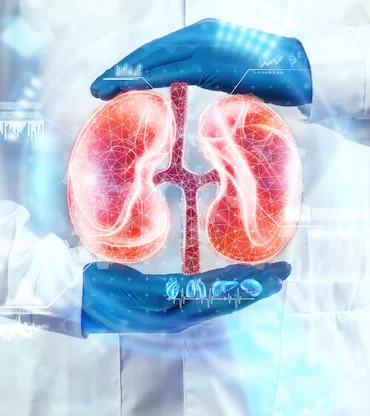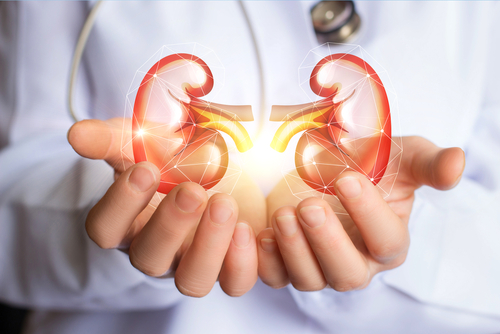Let’s understand first what is Chronic kidney disease (CKD) –
Chronic kidney disease (CKD) occurs when your kidneys get to be damaged and are unable to filter blood as effectively as they should. Chronic kidney disease is a medical condition that causes your kidneys to gradually lose function over time. It has affects millions of people worldwide. Research says one in every seven adults is thought to have chronic kidney disease (CKD).
What are the ways to help prevent chronic kidney disease (CKD)
Early detection and treatment of kidney disease can prevent it and delay its progression. Get tested by your primary care physician on an annual basis, especially if you are suffering from blood pressure, diabetes, high, or a family history of kidney disease or kidney failure. Stay active and fit, eat a healthy diet, control your blood sugar and blood pressure, and drink plenty of fluids to protect your kidneys and slow the progression of kidney disease.

Eight ways to prevent kidney disease
- Maintain a healthy blood pressure level.
- If you have diabetes, maintain your blood sugar levels.
- Monitor your kidney health with the help of your care practitioner.
- Take your prescribed medications on time.
- Create a meal plan with the help of your dietitian.
- Physical activity has to be a part of your daily routine.
- Good sleep is a must
- Discover healthy ways to cope with stress and depression.
Maintain healthy blood pressure.

Controlling your blood pressure is the most important step you can take to treat kidney disease. High blood pressure can cause kidney damage. You can protect your kidneys by keeping your blood pressure at or below the level recommended by your doctor. Blood pressure should be less than 140/90 mm Hg for the majority of people.

If you have diabetes, maintain your blood sugar levels.
Check your blood glucose level on a regular basis to achieve your blood glucose goal. Use the findings to make decisions about food, exercise, and medications. Inquire with your doctor about how frequently you should check your blood glucose level.
 Monitor your kidney health with the help of your care practitioner.
Monitor your kidney health with the help of your care practitioner.
The tests used by doctors to diagnose kidney disease can also be used to track changes in kidney function and damage. Kidney disease deteriorates over time. Ask your provider how the test results compare to the previous ones every time you get checked. Your objectives will be to
- Keep your GFR constant
- Maintain or reduce your urine albumin levels.
 Take your prescribed medications on time.
Take your prescribed medications on time.
Many people with chronic kidney disease (CKD) take medications to control their blood pressure, blood glucose, and cholesterol.
ACE inhibitors and ARBs, two types of blood pressure medications, may slow kidney disease and delay kidney failure, even in people who do not have high blood pressure.
Create a meal plan with the help of your dietitian.
A diet itian who is knowledgeable with kidney disease can help you develop a meal plan that includes foods that are both healthy and enjoyable to eat. Cooking and getting prepared your own food can help you eat healthier.
itian who is knowledgeable with kidney disease can help you develop a meal plan that includes foods that are both healthy and enjoyable to eat. Cooking and getting prepared your own food can help you eat healthier.
Physical activity has to be a part of your daily routine.
 Physical activity should be included in your daily routine for at least 30 minutes to help you reduce stress, manage your weight, and achieve your blood pressure target and blood glucose levels. If you are not currently active, consult with your doctor about the types and amounts of physical activity that are appropriate for you.
Physical activity should be included in your daily routine for at least 30 minutes to help you reduce stress, manage your weight, and achieve your blood pressure target and blood glucose levels. If you are not currently active, consult with your doctor about the types and amounts of physical activity that are appropriate for you.
Good sleep is a must.
Sleeping for 7 to 8 hours per night improves brain performance, mood, and mental health, and it can help you meet your blood pressure and blood glucose targets. You should work on improving your sleeping habits.
 Discover healthy ways to cope with stress and depression.
Discover healthy ways to cope with stress and depression.
Discover healthy ways to deal with stress and depression, such as Listening to music, focusing on something calm or peaceful, or meditating may also help you manage your kidney disease and keep your blood pressure and blood glucose levels healthy.

